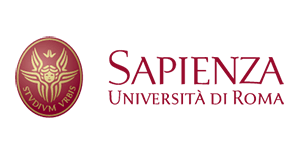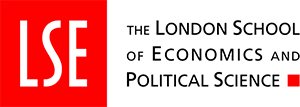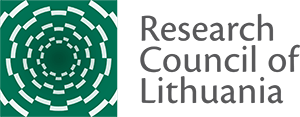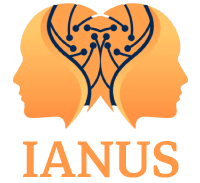
Erasmus University Rotterdam (NL)
Embedded in the dynamic and diverse city of Rotterdam, Erasmus University Rotterdam is a highly ranked, internationally oriented research university. It consists of seven schools, two institutes and a university college. Our mission is to make a positive impact on societal challenges, and this is at the core of our education and research. We strive to understand and make progress towards solving complex issues in close cooperation with our partners locally and globally.

Radboud University (Institute for Science in Society) (NL)
Radboud University is a public research university located in Nijmegen, Netherlands. The university bears the name of Saint Radboud, a 9th century Dutch bishop who was known for his intellect and support of the underprivileged. This bishop is rumoured to have been named after his uncle, the last pagan king of Friesland.
Established in 1923, Radboud University has consistently been included in the top 150 of universities in the world by four major university ranking tables. As of 2020, it ranks 105th in the Shanghai Academic Ranking of World Universities. Internationally, RU is known for its strong research output. In 2019, 447 PhD degrees were awarded, and 7.571 scientific articles were published. To bolster the international exchange of academic knowledge, Radboud University joined the Guild of European Research-Intensive Universities in 2016.
Located on a green campus in the southern Heyendaal neighbourhood of Nijmegen, the campus houses 7 faculties that conduct teaching and research in Arts, Law, Management, Medical Sciences, Social Sciences and Theology, Philosophy and Religious Studies. In addition to these faculties, the campus also hosts the Max Plank Institute for Psycholinguistics, a world class research centre devoted to the understanding of human language and communication.
Among its alumni Radboud University counts 12 Spinoza Prize laureates and 1 Nobel Prize laureate, Sir Konstantin Novoselov, the discoverer of graphene.
The Faculty of Science is a complete, student-oriented science faculty where research and education are closely related. The faculty aims to be an academic community with an international character, where staff members from different backgrounds can combine their talents with the common goal of being a leading faculty of science in Europe.In a number of scientific fields of research, such as organic chemistry, solid state physics, astrophysics, microbiology, cyber security (epi)genetics, and cognitive neuroscience, our Faculty of Science has taken a leading position worldwide. Its research has been brought under in different research institutes.
The Institute for Science in Society (ISiS) is part of the Science Faculty of Radboud University. ISiS hosts a variety of experts including philosophers, sociologists, anthropologists and interdisciplinary scientists with the aim to analyze, assess and improve the societal embedding of science and technology. We provide research and education for both bachelors and masters at the Science Faculty. Our research and education focuses on how actors – whether they are scientists, citizens, technology developers, or nature conservationists – understand the world around them and how such understanding can be improved to facilitate the addressing of complex issues in science and technology.

University of Tartu (Centre of Ethics) (EE)
The Centre for Ethics of the University of Tartu was established in June 2001 as an interdisciplinary unit within the Faculty of Philosophy. Starting from January 1st 2009, the Centre for Ethics is a consortium. The faculties that participate in our work are as follows: faculty of arts and humanities, faculty of social sciences, faculty of medicine and faculty of science and technology. The Centre aims to organize interdisciplinary research regarding the ethical issues pertaining to science, society and research activities; further reflections upon norms, values and questions of justice in the Estonian society through organizing public lectures, meetings, seminars and discussions; coordinate and improve the teaching of ethics at the University of Tartu, and prepare, compile and publish anthologies and textbooks on ethics and develop contacts with other ethics centres and organize visits by guest lecturers.


Fraunhofer Institute for Systems and Innovation Research (DE)
The Fraunhofer Institute for Systems and Innovation Research ISI conducts applied research in seven Competence Centers with a total of 28 Business Units and sees itself as an independent institute for society, politics and industry. Our expertise in the area of innovation research is based on the synergy of the technical, economic and social science knowledge of our staff members. In our work we apply not only a broad spectrum of advanced scientific theories, models, methods and social-science measurement instruments, but continually develop them further, utilizing the empirical findings from the research projects conducted.
On behalf of our customers we investigate the scientific, economic, ecological, social, organizational, legal and political framework conditions for generating innovations and their implications. We use scientifically based analysis, evaluation and forecasting methods. Our assessments of the potentials and limitations of technical, organizational or institutional innovations help decision-makers from industry, academia and politics in making strategic decisions and thus assist them in creating a favorable environment for innovations. Thus Fraunhofer ISI one of the leading innovation research institutes in Europe.

Sapienza University of Rome (IT)
Founded in 1303, Sapienza is the oldest university in Rome and the largest in Europe. Its mission is to contribute to the development of a knowledge society through research, excellence, quality education and international cooperation.
- 700 years of history
- 117,000 students (2020-2021 academic year)
- 3,300 professors
- 2,700 lecturers
- 2,100 employees, technicians and librarians
- 1,500 administrative staff in university hospitals
The world most important university rankings place Sapienza at the national top for quality of research, education and international dimension; moreover, Sapienza excels and leads as a benchmark in many subject areas.
Dept. of Communication and Social Research
The Department of Communication and Social Research (CoRiS) was born in 2010 from the union between the Department of Social Research and Sociological Methodology (RISMES) and the Department of Sociology and Communication (DISC). The latter represents the legacy of the Institute of Sociology, founded by Professor Franco Ferrarotti over 50 years ago.
The Department offers and promotes teaching and research activities in the areas of communication, sociology, humanities, and digital media studies, performing remarkably at national and international levels.
The Department includes around 100 people between faculty members and administration employees.

London School of Economics (UK)
LSE is the only university in the United Kingdom dedicated solely to the study and research of social sciences.
LSE awards a range of academic degrees; over 140 MSc programmes, 5 MPA programmes, an LLM, 30 BSc programmes, an LLB, 4 BA programmes, and 35 PhD programmes. Courses are split across more than thirty research centres and nineteen departments, plus a Language Centre. LSE’s academic departments are Accounting, Anthropology, Economic History, Economics, Finance, Geography and Environment, Gender Studies, Health Policy, Government, International Development, International History, International Relations, Law, Management, Mathematics, Media and Communications, Methodology, Philosophy, Logic and Scientific Method, Psychological and Behavioural Science, Social Policy, Sociology, Statistics, European Institute, International Inequalities Institute, Institute of Public Affairs, Language Centre, Marshall Institute for Philanthropy and Social Entrepreneurship and the School of Public Policy
LSE has more than 11,000 students, just under seventy percent of whom come from outside the UK, and 3,300 staff. It had an income of £391.1 million in 2020/21, of which £32.8 million was from research grants. One hundred and fifty-five nationalities are represented amongst the LSE’s student body and the school had the second highest percentage of international students (70%) of the 800 institutions in the 2015–16 Times Higher Education World University Ranking. Despite its name, the school is organised into 25 academic departments and institutes which conduct teaching and research across a range of pure and applied social sciences.
LSE is a member of the Russell Group, Association of Commonwealth Universities, European University Association and is often considered a part of the “Golden Triangle” of top universities in South East England. The LSE also forms part of CIVICA – The European University of Social Sciences, a network of eight European universities focused on research in the social sciences.
In the 2014 Research Excellence Framework, LSE had the joint highest percentage of world-leading research among research submitted of any institution that entered more than one unit of assessment and was ranked third by cumulative grade point average with a score of 3.35, beating both Oxford and Cambridge. According to analysis of the REF 2014 subject results by Times Higher Education, the school is the UK’s top research university in terms of GPA of research submitted in business and management; area studies; and communication, cultural and media studies, library and information management, and second in law; politics and international studies; economics and econometrics; and social work and social policy.

Aristotle University of Thessaloniki (GR)
The Aristotle University of Thessaloniki is the largest university in Greece. The main campus is located in the centre of the city of Thessaloniki, and covers an area of about 33.4 hectares. It comprises 10 faculties which consist of 40 schools and 1 single-School Faculty. The strategic objectives of AUTh, in the framework of its vision and mission, remain high and consistently oriented to the continuation of its tradition, namely to be a pioneer institution, standing out among Greek and many foreign Universities on all levels: education, research, culture, connection with society.

Research Council of Lithuania (LT)
Research Council of Lithuania has been founded 1991 to fulfil the role of an expert institution tackling challenges of science development on a national level. The Council is a counsellor of the Lithuanian Parliament and the Government on research and researchers training issues, implements programme based competitive funding of research, administers most important Lithuanian science development programmes, evaluates research performance and represents Lithuanian science in various European institutions and other international organisations.

Acumenist
AcumenIST is a new concept consultancy initiative provided by experienced business leaders with a pronounced track record in both scientific research, development and innovation, as well as in public and regulatory affairs.
AcumenIST combines strong professional skills in the stewardship of emerging technologies along their value chains with established track records in both entrepreneurship, business development and policy making; it supports both the private and the public sector through technology-specific expertise, including (but not limited to) the following activities:
- Technology and market analysis of all areas of biotechnology, nanotechnology and converging technologies
- Statistical and economic analyses and impact assessments
- Conceptualisation and conduct of (innovative) technology assessment, technology foresight and policy assessment exercises, including participatory (stakeholder engagement) exercises
- Business development (including both project participation and private contracting)
- R&D vision setting, strategy development and implementation monitoring
- General consultancy services regarding IP registration/licensing, product development, due diligence, commercialisation, standardisation, and regulatory and public affairs
- Network-building and -support
- Project management
